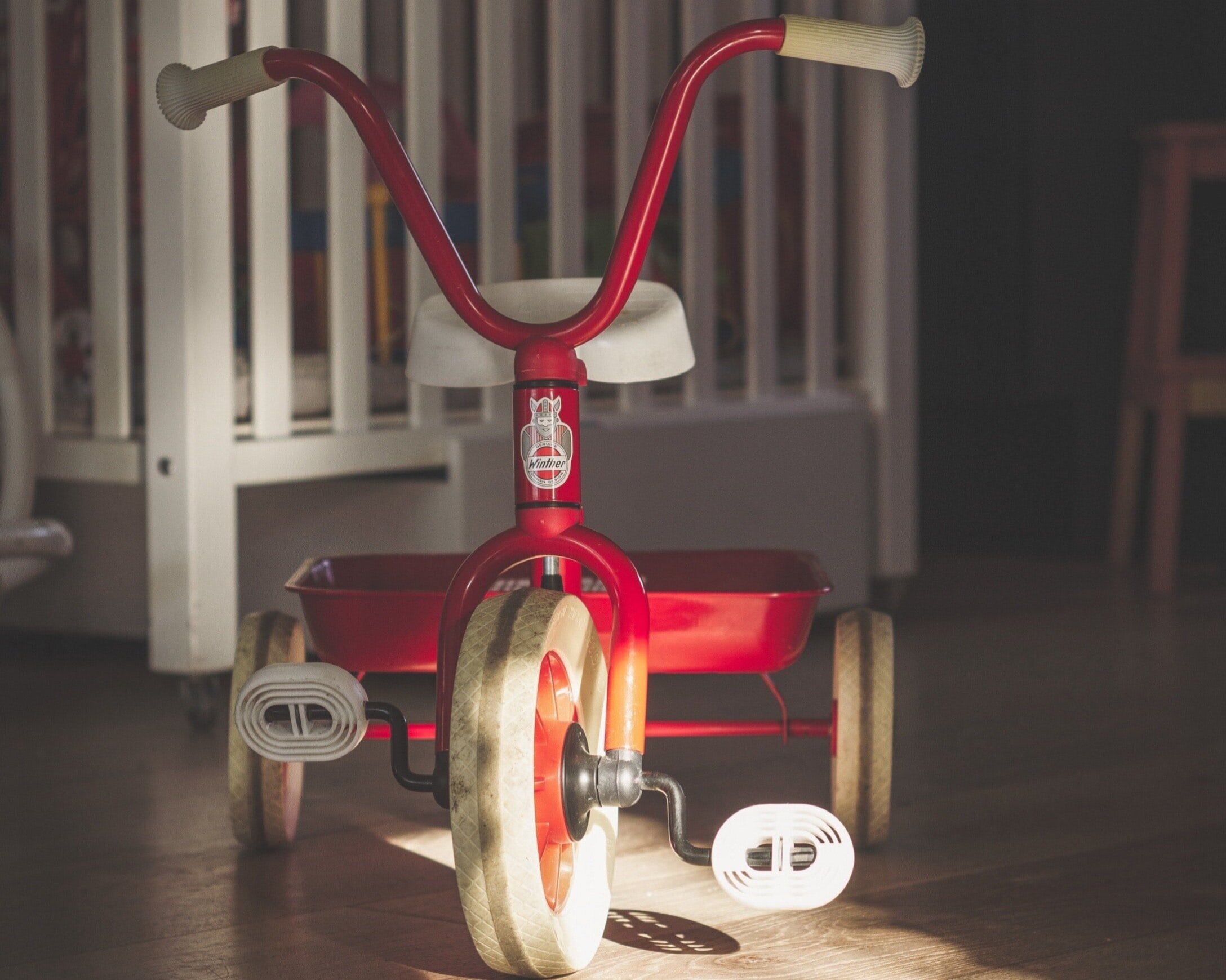When Fear Says We Can't
/Photo by Sven Brandsma on Unsplash
We’ve always told our youngest son the story of the day he turned three. He woke up that birthday morning down in Texas (during language school) and told my husband, Peter, he had a dream he could ride a two-wheeler bike. He asked his dad to get it out of storage so he could ride it.
So, doing what all great dads do, my husband dragged out the bike and got ready to launch our little guy down the paved road on his fledgling flight. And, like all good moms, I scolded him. “Are you kidding me? You’re going to send him down the pavement? You’re not even going to start him in the grass? No helmet or training wheels? He’s three!”
“He said he can ride it.”
“He had a dream he could ride it!”
“Yeah,” my husband shrugged. “Let’s see what he can do.”
A three-year-old! Really? A two-year-old just the day before. Are you kidding me?
I’m not even going to tell you how the story ends because just the other day, I broke into our old computer and guess what I found? I had taped it. The whole thing. I didn’t remember that. But, here it is, my baby’s first try on a two-wheeler after a dream that said he could do it:
What happened? What made it possible for him in that moment to take a dream and make it real? How did he do it?
The answer is in him: He believed with all his heart he could ride that bike. That he had everything he needed within him to make it happen. He didn’t stop to ask what if he failed. If he fell. If he got banged up along the way. He never allowed the fear of what “might” come to stop him in his tracks—to debilitate his dream.
Fear can do that. It can knock us out. And it’s usually not the expected punch—the jab or the right hook—the straight-in-the-face warnings to keep us safe; the reason we have fear in the first place (to avoid the cliff, to run from the snarling dog). But it’s the sucker punch, the one from behind. The one that didn’t feel like a punch until we’re down on the ground.
Fear speaks loudest through the voices in our heads. Voices from our past. From those around us. The ones that say we can’t do it. There’s too much at risk. We’ll fail. We’re not good enough. The ones that, by the time the list is complete, the dream is dead.
So, how do we conquer fear? How do we move forward?
Step One: Silence the Voices.
That sounds easy, but we all know it’s not. It takes work and effort to “take all thoughts captive in obedience to Christ” (2 Cor. 10:5). The voices and messages are embedded deep within us. And, even when we’re not aware, they can dictate our choices. Whose voice do you hear when you’re measuring your steps? When you’ve found form to a dream? Think about it. Listen quietly. The voices are talking whether you want them to or not.
How often we allow people power over us; power in our heads, power in our lives. Often, it’s people closest to us, but sometimes, we even give this power to strangers. People we don’t even know. How do they gain a voice in our head, a place to determine our own value? Strangers? We give them an ear because somewhere, deep down, they confirm the lie. The lie that we don’t measure up.
Even good voices can hinder us. We all need cheerleaders, encouragers in our life, people to spur us on. But when we seek those out, when we allow the accolades to dictate our worth, we can end up as approval-seekers. We’ve listened to the wrong voice.
But here’s the secret. There’s only one Voice that really matters. One that holds the truth of who you are and what you can do.
Step Two: Listen to the One.
Can you hear your Father’s voice? The One who calls you “dearly beloved child.” The One who formed you and knows you intimately. The only One with the power to give you worth, the One to place value on your life. His voice says you are held, forgiven, adopted, strong, whole, victorious, fearfully and wonderfully made, never alone, complete, dearly loved, and nothing can take you out of His hand. And His opinion of you does not falter because it doesn’t depend on you. It’s not a worth you need to prove. So, if that’s the case, how can another person, even a stranger, gain more access to your heart then Him?
Step Three: Keep Pedaling.
When the disciple Peter saw Jesus on the water, he first asked, “Is it you, Lord.” When the answer was ‘yes,’ he got out of the boat. And because he got out—and he was the only one—he walked on water. He experienced the miracle. Do you hear Him? Is He saying, ‘I have placed this dream in you. You have everything you need, and I’m right here with you.’?
If that’s you, if you hear Him calling, step out. If He’s given you a dream, it won’t happen with training wheels or soft grass. Not even with an audience (even your own mother) yelling on the sidelines, “It’s not safe, don’t try it.”
I could watch this video over and over again. Not because it’s my little guy—and he’s pretty darn cute—but because it reminds me to carry my dreams with me, to pull them out of storage. To climb on. Pedal like the wind. And most of all, believe in my heart that, if God has given me a dream, I can do it.




